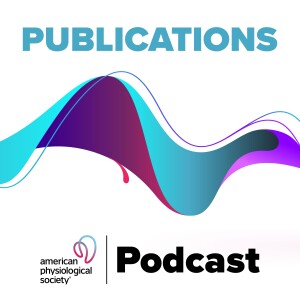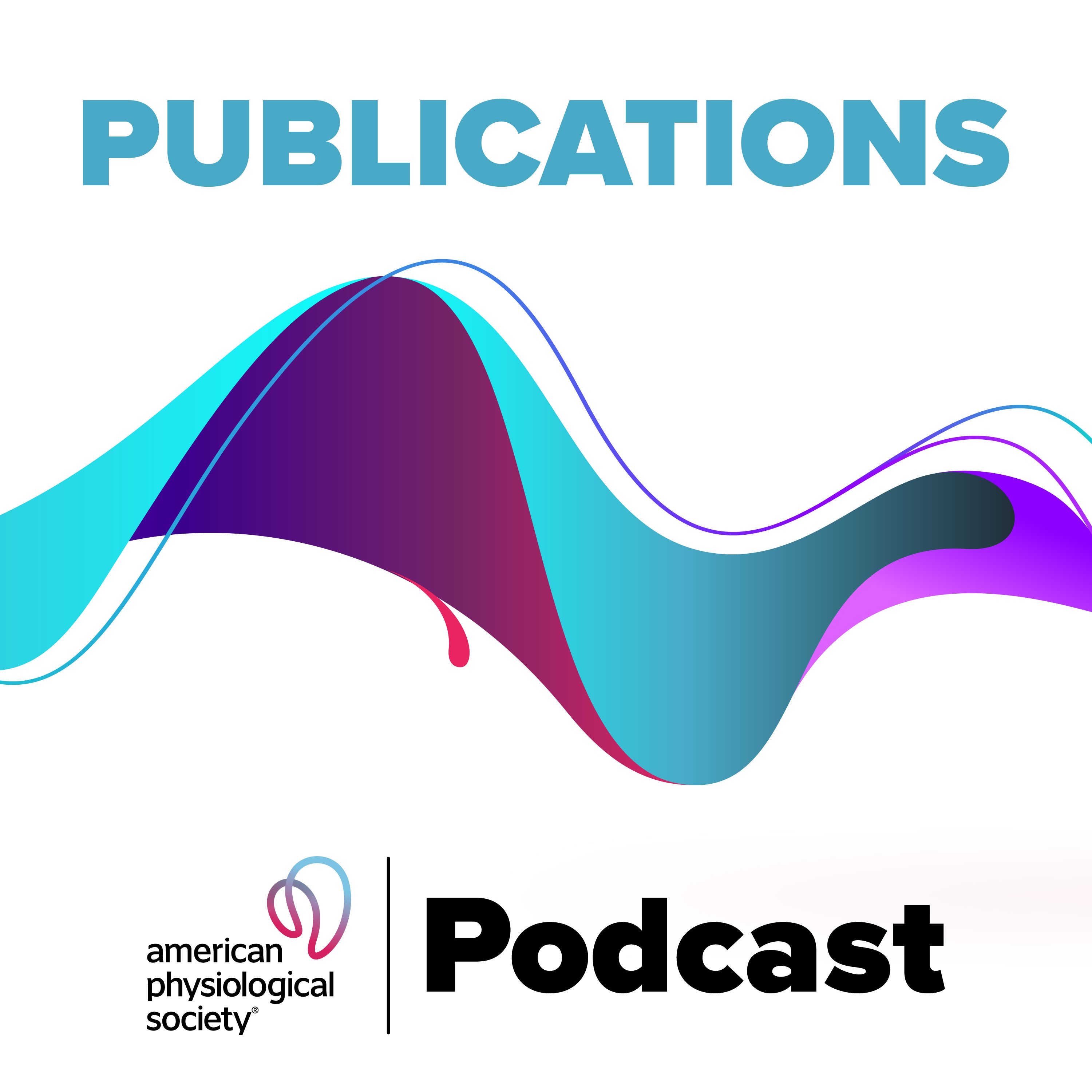Episodes

2 hours ago
2 hours ago
In this podcast, co-first author Jonathan Hyde discusses the recently published article, ‘Pulmonary Vascular Endothelial Dysfunction is Induced by Nonpulsatile Pulmonary Blood Flow in an Ovine Classic Glenn Model’. The study used an in vivo large animal model combined with ex vivo and in vitro studies to investigate pulmonary vascular endothelial cell dysfunction associated with the Glenn procedure. The results suggest that low, non-pulsatile flow associated with Glenn physiology plays a pivotal role in development of endothelial cell dysfunction.
Pulmonary Vascular Endothelial Dysfunction Is Induced by Nonpulsatile Pulmonary Blood Flow in an Ovine Classic Glenn Model
Jonathan Hyde, Michael A. Smith, Naveen Swami, John H. Hwang, Yenchun Chao, Jason Boehme, Gary W. Raff, Casper Noah Nilsson, Wenhui Gong, Gail H. Deutsch, Eric G. Johnson, Ting Wang, Stephen M. Black, Sanjeev A. Datar, Emin Maltepe, Jeffrey R. Fineman
Comprehensive Physiology 2025 15:6, e70071

2 days ago
2 days ago
In this episode of the APS Publications Podcast, Dr. Ralph Rühl discusses his team’s new article in Physiological Genomics, “Transcriptome-driven Health-status Transversal-predictor Analysis for health, food, microbiome and disease markers for understanding of lifestyle diseases.” The article outlines the development of a novel artificial intelligence approach based on machine-learning to predict general health and food-intake parameters. This novel technique, which is based on PBMC transcriptomics from human blood, can predict a wide range of health-related markers.
Todt T, van Bussel I, Afman L, Brennan L, Ivanova DG, Kiselova-Kaneva Y, Thomas EL, Rühl R. Transcriptome-driven Health-status Transversal-predictor Analysis for health, food, microbiome and disease markers for understanding of lifestyle diseases. Physiol Genomics. 2025 Nov 19. doi: 10.1152/physiolgenomics.00026.2025. PMID: 41259124.

Thursday Dec 18, 2025
Thursday Dec 18, 2025
In this episode of The APS Publications Podcast, featuring Advances in Physiology Education, David Van Reyk discusses their study on "The use of AI large language models by university students for assignment preparation." Over 50% used AI for idea generation and drafting. PRC students showed improvements in their grades with the use of AI, while Australian students’ grades remained unchanged. Students support institutional guidance and access for responsible AI use.
The use of AI large language models by university students for assignment preparation
Hui Chen, David Van Reyk, and Brian G. Oliver
Advances in Physiology Education 2025 49:2, 517-525

Wednesday Dec 17, 2025
Wednesday Dec 17, 2025
In this episode of the APS Publications Podcast, featuring Advances in Physiology Education, coauthors Christine Bell and Oana Birceanu discuss their recently published article, “Educators’ experience and guide to scaffolding generative AI applications throughout a physiology and pharmacology undergraduate laboratory course.” The paper presents a two-pronged approach to reduce GenAI confusion and build AI literacy, research, and critical thinking skills.
Christine E. Bell and Oana Birceanu
Advances in Physiology Education 2025 49:3, 721-728

Wednesday Dec 17, 2025
Wednesday Dec 17, 2025
In the latest APS Publications Podcast, featuring Advances in Physiology Education, John Zubek discusses, “From virtual to reality: evaluating student attitudes through VR dissection preparations: a use case.”
VR vs. live dissections: how do students learn best? We explored their experiences to see how tech can complement STEM & healthcare training.
From virtual to reality: evaluating student attitudes through VR dissection preparations: a use case
Sarah Shine, Julia Warznie, Guoli Zhou, and John Zubek
Advances in Physiology Education 2025 49:3, 611-620

Tuesday Dec 16, 2025
Tuesday Dec 16, 2025
In this episode of the APS Publications Podcast, featuring Advances in Physiology Education, coauthors Serena Kuang and Nora Laban discuss their recently published Illuminations paper “From compliance to moduli: clarifying basic mechanical properties of biological tissues.”
This article advances physiology education by clarifying the basic mechanical property-related terms in physiology, introducing two fundamental terms in material science that are often missing in physiology education, and revealing the interrelationships among these terms. It serves as a handy tool kit for physiology educators, researchers, as well as clinicians to select and apply these terms appropriately based on their needs.
From compliance to moduli: clarifying basic mechanical properties of biological tissues
Nora Laban, Radwa Dawood, and Serena Y. Kuang
Advances in Physiology Education 2025 49:3, 651-658

Tuesday Dec 09, 2025
Tuesday Dec 09, 2025
In this podcast, coauthors Mary Pelkowski and Gabi Waite discuss their recently published Illuminations article, “Implementing core concept teaching in an integrated, clinical presentation model medical school curriculum”. They outline a practical approach to incorporating physiology core-concept teaching into an integrated, team-taught medical curriculum—combining a clinical presentation model with flipped classroom learning.
Mary M. Pelkowski, Xiaojun Qi-Lytle, and Gabi N. Waite
Advances in Physiology Education 2025 49:3, 659-666

Monday Dec 01, 2025
Monday Dec 01, 2025
In this podcast, coauthors Maria Magdalena Quetglas-Llabrés and Manuel Jiménez-García discuss their recently published article, ‘Effects of Combining Exercise and Dietary Shifts on Motor Coordination and Oxidative Markers in a High-Fat Diet Model in Rats.' The article investigated the effect of exercise, alone or with dietary modifications, on high fat diet–induced outcomes in rats of both sexes. Authors overview the methodological approach and discuss key takeaways and next steps.
Effects of Combining Exercise and Dietary Shifts on Motor Coordination and Oxidative Markers in a High-Fat Diet Model in Rats
Manuel Jiménez-García, Maria Magdalena Quetglas-Llabrés, Maria Del Mar Ribas-Taberner, Antoni Sureda-Gomila, David Moranta-Mesquida, Silvia Tejada-Gavela
Comprehensive Physiology 2025;15(6):e70074

